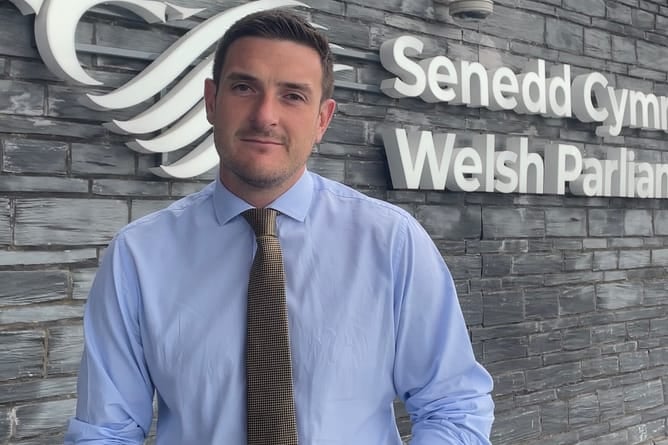James Evans has raised concerns over Wales' ability to cope with the growing frequency of severe weather events, following the devastation caused by Storm Bert and the most recent Storm Darragh.
The Brecon and Radnorshire MS raised the issue in the Senedd this week.
The storms have wreaked havoc across the country, with many communities facing widespread flooding, power outages, and road closures.

Mr Evans acknowledged the efforts of emergency services and utilities in responding to the disasters. He commended the National Grid staff for swiftly restoring power to affected areas in Mid Wales and expressed gratitude to Powys Highways teams for clearing roads in the aftermath of the storms. However, he pointed out that some communities remain without power, and many residents continue to deal with the aftermath of flooding.
“The way in which communities pull together at such tough times is incredible,” said Mr Evans.
“But I question our resilience and ability to cope with these increasing stormy events.”
During a Senedd debate yesterday (Tuesday), Mr Evans highlighted the importance of properly funding agencies like Natural Resources Wales (NRW) to ensure they can respond effectively to the growing risk of flooding and storms.
“These weather events are becoming more frequent, and that means we need to make sure that our regulator, NRW, is operationally effective when it comes to dealing with these issues,” Mr Evans told Deputy First Minister, Huw Irranca-Davies.
He questioned how much extra funding NRW would receive in the wake of the Welsh Government’s recent budget allocation to address these challenges.
While acknowledging the role of NRW and other agencies in the response efforts, Mr Evans stressed the need for more investment to bolster resilience. He specifically raised concerns over the cut in NRW's funding in the previous Welsh Government budget.
“We need to make sure that they’ve (NRW) got all the tools at their disposal, and the finance available, so that they can step up to the plate when we need them to,” he said.
Mr Evans has also raised concerns about the broader implications of power outages, particularly as more aspects of daily life become reliant on electricity.
In response to Mr Evans' comments, the Deputy First Minister echoed his support for those responding to power outages - as well as those in water utilities.
“While I was trying to batten down my window, they were up pylons and out in fields trying to load up generators to keep water treatment works going. It’s quite incredible and quite heroic there,” he said.
The Deputy First acknowledged the importance of continued investment in NRW and flood resilience. He emphasised that the Welsh Government had already been focusing heavily on these issues for years, with funding specifically directed to NRW to enhance their flood response capabilities.
“We’ve put money into NRW to help them do this as well,” said Mr Irranca-Davies, noting that he could not provide specifics on how the additional funds would be used but would address those details in future committee sessions. He highlighted that flood resilience funding was already at a record level, with investments aimed at both NRW and local authorities.
“We’re very focused on this, because we really know that this is going to be far from the last,” he said.
“We have to deal with these on a fairly regular basis now, and, in which case, there are community resilience levels, and then there are the big agencies and public authorities as well, making sure that they’ve got full capacity as well.”





Comments
This article has no comments yet. Be the first to leave a comment.